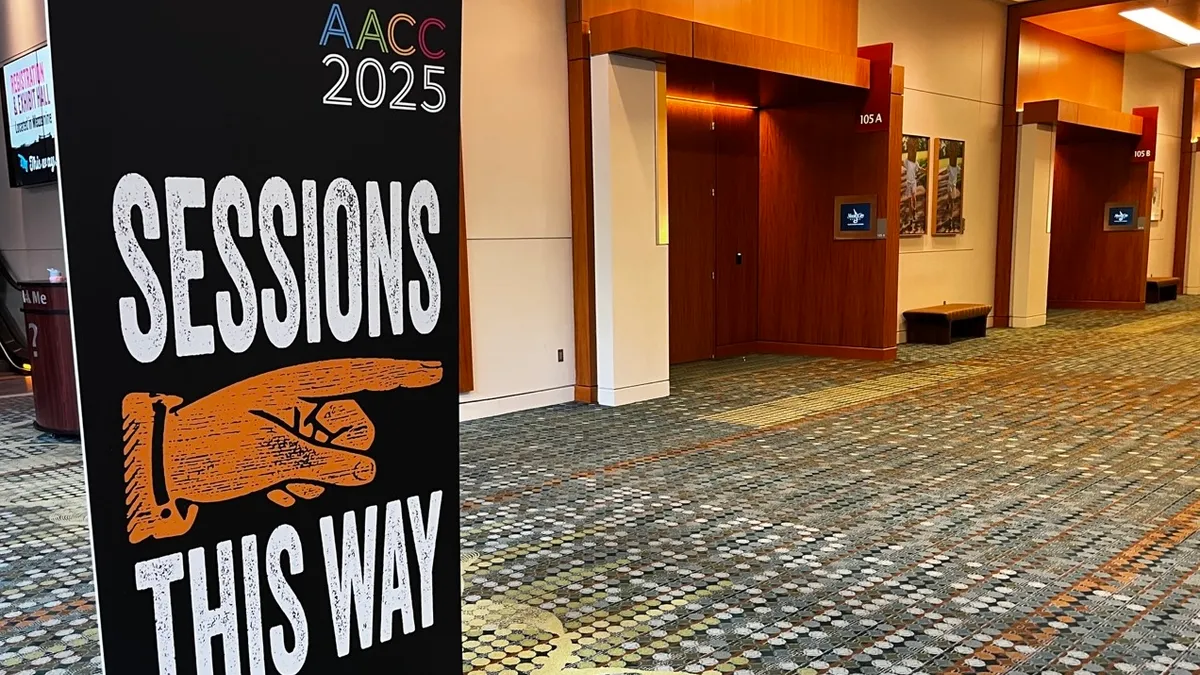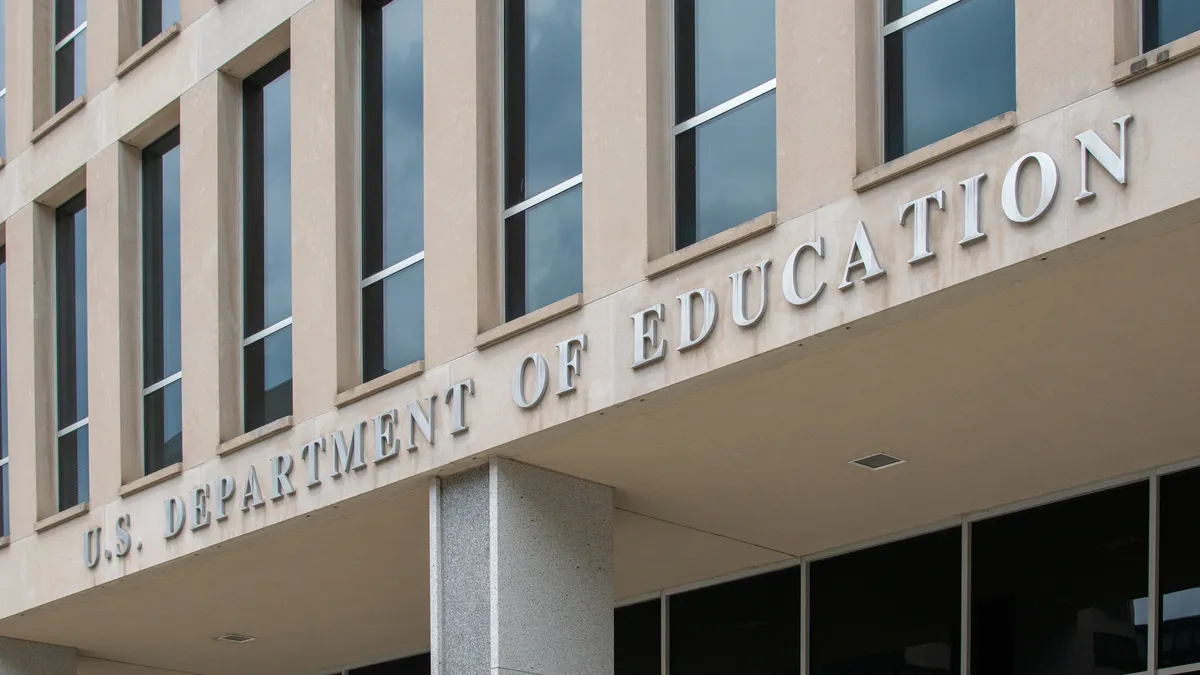Higher ed leaders often focus on the financial choices students face, but the conversation overwhelmingly focuses on tuition costs and basic needs like housing and food.
The University of Kentucky is looking at another area. In September, it announced it will offer all of its students investment accounts by fall 2023. Students who enroll can also earn seed money to invest by completing program goals, like taking financial literacy courses.
The program, UK Invests, will launch with roughly $1 million raised from private donors and use a customized version of a Fidelity Investments app. A pilot program is underway with a test cohort of roughly 600 student-athletes.
Heath Price, associate chief information officer, discussed how UK Invests came to be, why it began with athletes, and how the university hopes it can teach investment literacy to 30,000 students.
This interview has been edited for clarity and brevity.
HIGHER ED DIVE: How does UK Invests this new effort fit into other financial education you offer students?

HEATH PRICE: Within student success, we've had a space for a few years now that has been focused on student financial wellness and education outside of the classroom. It's not been a requirement, it's been something incorporated in certain 101 classes for incoming freshmen. Or it's been something that is shared with classes to encourage students to come in and learn more.
But it can sometimes feel like you're just crying into the wind. Like, who's hearing me? We've been doing a lot, but we wanted to find other ways to be effective at bringing students to those types of resources.
Incentivizing this kind of investing concept in the future with dollars, even small dollars, that go right toward an account that a student receives can be very meaningful and will hopefully bring students in.
Why start the program with student-athletes?
Two years ago or so, the NCAA took some issues to court as it related to student-athlete compensation and issues around that. The Supreme Court ruled, essentially, against the NCAA and said that certain athletes should be entitled to receive certain additional awards. They called it an academic achievement award and set the cap at $5,980.
You're not required to give to the student-athletes. The court simply set an amount and said, this would be what that you could give up to, if you wanted to additionally award your student-athletes in the future.
So the athletic department here at UK had decided that this year, they were going to begin distributing that money. But they wanted to have some criteria for our student-athletes to achieve beforehand.
It felt like, OK, y'all are talking about wanting more education for your student-athletes, you want them to understand some financial aid at a deeper level, and we have this vision for UK Invests.
So the idea stemmed from the ability to give student-athletes more financial support?
Yes. If it wasn't happening, with that $5,980, I'm not sure we would have launched it yet. I think we probably would have pushed it a little bit longer. But knowing that cohort this fall is going to be receiving some of those funds, and they'll get that through the academic year in increments as they achieve certain milestones — knowing that was coming felt like the right type of opportunity for us to do it.
We didn't want to try to hide the launch. That felt a little disingenuous. But we knew this being in the press release is not gonna be something that everybody really likes, and it could draw some ire. Different people have different feelings on college athletics and the amount of money those programs generate.
It's really a circumstantial thing. For many student-athletes, to receive $5,980, it's a lot of money. And many of them won't have professional careers as athletes. If you're a freshman or sophomore student-athlete, some financial guidance learned now could be really impactful to the future.
We are going to focus on other student populations pretty quickly as we move into January.
Has UK Invest decided on other student populations to test the investment accounts with next?
We have ideas for the roll-up to spring but nothing has been confirmed yet. Speaking very candidly, the desire is to get to all 30,000 students as fast as possible.
Opening accounts is an individual decision. We're obviously not going to be opening accounts for people. That's their personal choice. No two students' situations are the same, so some of how we prepare to do that gets in the weeds. In higher ed, cookie-cutter usually doesn't work. For example, we have a sizable international population, and there are rules about who can and can't open investment accounts.
We do hope that students are so excited about this that they are rushing to get an investment account. That would not be a bad thing in our minds.
We want to help give them an easy path, but it won't be our account. There's no financial interest on the university side as it relates to them opening accounts in aggregate. It is just about giving them that opportunity. Having that account opened by that student gives us a place to push the money.
How is UK Invests teaching financial literacy in tandem with making the accounts available?
One of the reasons why the athletic side is a great pilot for us is they already have a partner called iGrad. iGrad has worked with that financial education office over the last five or six years, providing easily available learning modules.
If I'm a student, I log in and have instant access. They have access to about 30 different modules and they're really good. The average course might take you 25 minutes to do. It's very clear. It's unbiased in the sense that it is not coming from a financial institution or a company that either does investments or banking. We've been talking to iGrad for a little over a year to develop what this education could look like.
Students will complete three courses in the fall and three courses in the spring to be able to have some of those funds put in their account.
Where is the money for this program coming from?
The beginning of the program is really defined around committed philanthropic dollars. There are not state funds going into this program. When we reach the first full year of doing this, there's going to be high six figures of dollars available to be placed in student accounts through these micro-transactions.
Now, I'm not the CFO, but I think there's a real appetite in the future for growth on the philanthropic side from people who care about higher education and our students in particular. Kentucky, as a state, had many decades where higher education was only available to certain populations of potential students. So the opportunity for philanthropy, I believe, is going to be pretty meaningful in future funding.






















